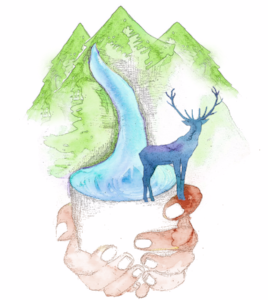Monkey Do's and Monkey Don'ts
Fifteen days into the job, a colleague and I found ourselves in an uncomfortable and heartbreaking situation. We were closing down the Howler monkeys (Alouatta) rehabilitation center, Alouatta Sanctuary. Like past interns, I arrived in Panama eager to learn, contribute and advance scientific research. There was also the joy of working closely with Howler monkeys that either lost their surrogate parents or were in the illegal pet trade and needed rehabilitation back into their environment. I was working for one of the few organizations in Panama that had a reputable reputation according to the Panama Ministry of the Environment. However, the negative situation unfolded as it became apparent that she and I were on our own, with the help of four local Panamanians, for the duration of our stay and we needed to act fast.
With the founders of the sanctuary in California, we were told that they had no funding, no interns, no intention of legalizing employee contracts and no future plans. The process of turning the sanctuary into a non-profit was going to take a year to two years, and they had no plans of returning to manage the sanctuary. Just like a cannonball, the news came crashing down on us through the little means of communication we had in the tropical forest. Our first concern and question was, what to do with the monkeys? All other questions proceeded, followed by a slew of unfortunate information about the operations of the sanctuary from mishandling of finances to undocumented legal paperwork. Together we began working through various options with the question becoming, what would be best for the monkeys? After dialogue with several parties (i.e. founders, landowner and past interns) this question dug a little bit further from what would be best to what is legal.
The founders were writing us to not hand over the monkeys to the Ministry of Environment due to their personal perception that the government was going to place the monkeys in a “bad home”. They were in the process of coordinating to move the monkeys to another rehabilitation center in Costa Rica. Although the center in Costa Rica may have offered better care for the monkeys, the dilemma came when we were told no legal paperwork had been processed to transfer the monkeys from one country to another. Does a line exist between what would be best for the animals and what is illegal? I would say this line does exist for some and not for others. Strong emotions and personal values come into play on one’s belief of best care, treatment and future for the animals. My colleague and I expressed how we were not going to be involved with illegal trafficking of animals.
The situation turned dire once the founders informed us that they had made arrangements for a veterinarian to come to the sanctuary to transport the monkeys across the border. At this time, the Ministry of Environment was informed and they arrived immediately at the sanctuary to transport the monkeys down to Panama City. All emotions surfaced from worry, frustration to sadness as we said our goodbyes to the monkeys in our care.
Employees of Alouatta Sanctuary: Ofelia, Juan and Amelia
Starting an Animal Sanctuary:
International Wildlife Rehabilitation Center
National Wildlife Rehabilitators Association

